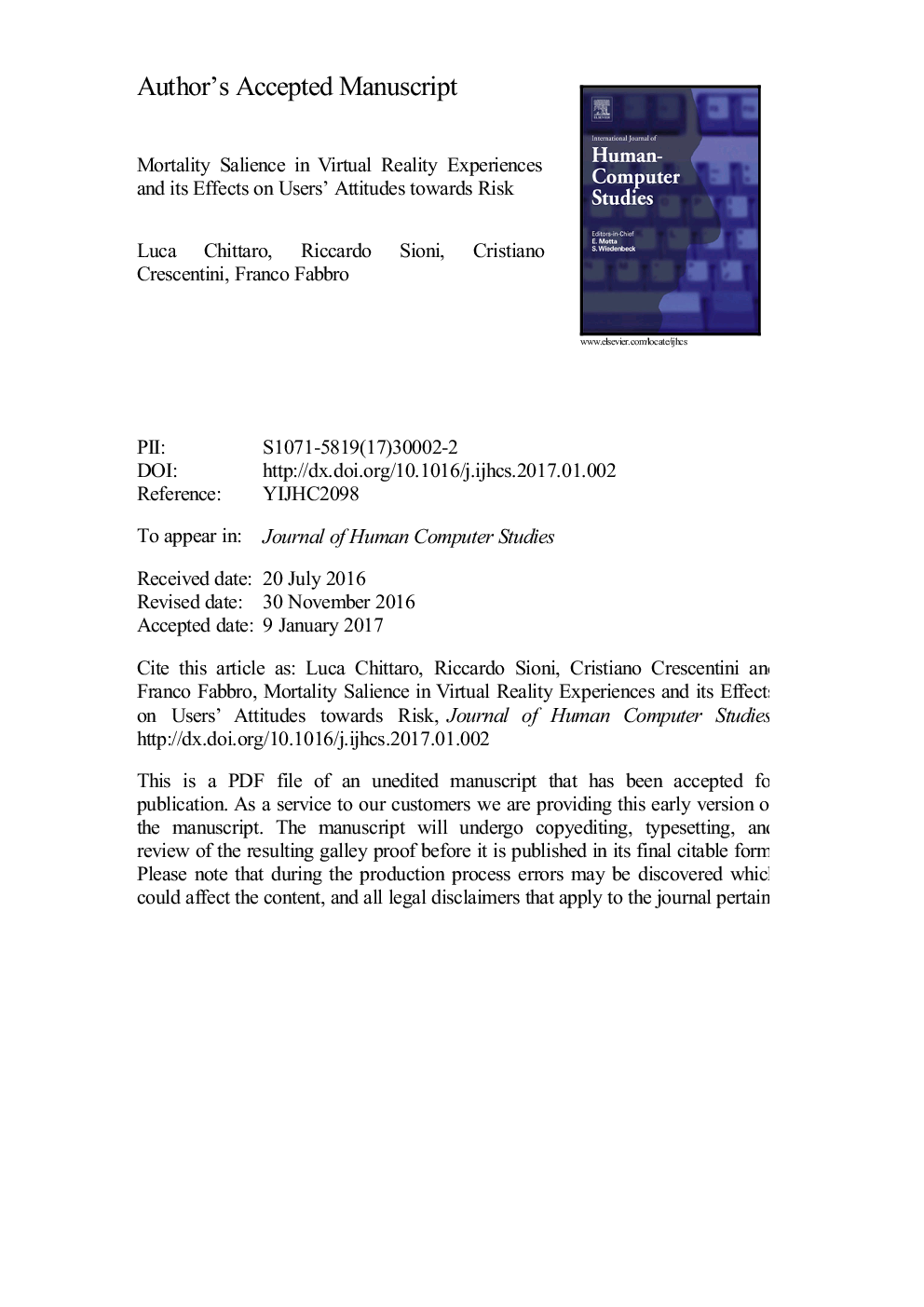ترجمه فارسی عنوان مقاله
معیار مرگ و میر در تجارب واقعیت مجازی و تاثیر آن بر نگرش کاربران نسبت به ریسک
عنوان انگلیسی
Mortality salience in virtual reality experiences and its effects on users attitudes towards risk
| کد مقاله | سال انتشار | تعداد صفحات مقاله انگلیسی |
|---|---|---|
| 158766 | 2017 | 49 صفحه PDF |
منبع

Publisher : Elsevier - Science Direct (الزویر - ساینس دایرکت)
Journal : International Journal of Human-Computer Studies, Volume 101, May 2017, Pages 10-22
ترجمه کلمات کلیدی
واقعیت مجازی، تکنولوژی اطمینان، تئوری مدیریت ترس، نگرش نسبت به ریسک، مرگ و میر تحریک فیزیولوژیکی، صفات شخصیتی،
کلمات کلیدی انگلیسی
Virtual reality; Persuasive technology; Terror management theory; Attitudes towards risk; Mortality salience; Physiological arousal; Personality traits;

